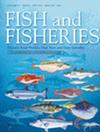Are Fishers the Forgotten Victims of Maritime Piracy? An Exploratory Global Analysis
IF 6.1
1区 农林科学
Q1 FISHERIES
引用次数: 0
Abstract
Despite the recent decline of recorded incidents globally, maritime piracy remains a significant problem in many parts of the world. Reflecting global economic inequalities, commercial interests—particularly those of the global shipping and energy sectors—have largely shaped public and academic discourse, as well as policy on piracy and other ‘blue crimes’. In this context, other potential victims, including fishers, have been largely overlooked. In this article, we aim to rebalance the dominant narrative and investigate the scope, characteristics and consequences of piracy targeting fishing vessels. To do so, we combined new data obtained through a worldwide media content analysis with a database of piracy incidents that we had developed in the framework of a broader project. Our findings show that fishers—especially those in small‐scale fisheries—are the forgotten victims of piracy. Piracy against fishers occurs much more frequently than existing reporting mechanisms indicate and is geographically widespread, manifesting itself also in areas that are not usually considered piracy ‘hot spots’. Small‐scale fishers bear the brunt of this criminal activity. The accompanying violence and property deprivation generate significant harms for the fishers and their small businesses. At the same time, piracy threatens the socio‐economic sustainability and food security of the fishers' communities. On this basis, we argue for increased awareness of this neglected threat to fishers and their communities and recommend further research, the creation of a targeted monitoring system, and the development of more inclusive policies on contemporary piracy beyond the current focus on the shipping and energy sectors.渔民是被海盗遗忘的受害者吗?探索性全球分析
尽管最近全球记录在案的海盗事件有所减少,但海盗行为在世界许多地区仍然是一个严重的问题。商业利益——尤其是全球航运和能源部门的利益——在很大程度上影响了公众和学术话语,以及打击海盗和其他“蓝色犯罪”的政策,这反映了全球经济的不平等。在这种情况下,包括渔民在内的其他潜在受害者在很大程度上被忽视了。在本文中,我们旨在重新平衡主流叙事,并调查以渔船为目标的海盗行为的范围、特征和后果。为此,我们将通过全球媒体内容分析获得的新数据与我们在一个更广泛的项目框架内开发的盗版事件数据库结合起来。我们的研究结果表明,渔民——尤其是小规模渔民——是被遗忘的海盗受害者。针对渔民的海盗行为发生的频率比现有报告机制所显示的要高得多,而且在地理上分布广泛,在通常不被认为是海盗“热点”的地区也表现出来。在这种犯罪活动中,小规模渔民首当其冲。随之而来的暴力和财产剥夺给渔民和他们的小生意造成了重大伤害。与此同时,海盗行为威胁着渔民社区的社会经济可持续性和粮食安全。在此基础上,我们主张提高对这一被忽视的对渔民及其社区的威胁的认识,并建议进一步研究,建立有针对性的监测系统,制定更具包容性的当代海盗政策,而不仅仅是目前对航运和能源部门的关注。
本文章由计算机程序翻译,如有差异,请以英文原文为准。
求助全文
约1分钟内获得全文
求助全文
来源期刊

Fish and Fisheries
农林科学-渔业
CiteScore
12.80
自引率
6.00%
发文量
83
期刊介绍:
Fish and Fisheries adopts a broad, interdisciplinary approach to the subject of fish biology and fisheries. It draws contributions in the form of major synoptic papers and syntheses or meta-analyses that lay out new approaches, re-examine existing findings, methods or theory, and discuss papers and commentaries from diverse areas. Focal areas include fish palaeontology, molecular biology and ecology, genetics, biochemistry, physiology, ecology, behaviour, evolutionary studies, conservation, assessment, population dynamics, mathematical modelling, ecosystem analysis and the social, economic and policy aspects of fisheries where they are grounded in a scientific approach. A paper in Fish and Fisheries must draw upon all key elements of the existing literature on a topic, normally have a broad geographic and/or taxonomic scope, and provide general points which make it compelling to a wide range of readers whatever their geographical location. So, in short, we aim to publish articles that make syntheses of old or synoptic, long-term or spatially widespread data, introduce or consolidate fresh concepts or theory, or, in the Ghoti section, briefly justify preliminary, new synoptic ideas. Please note that authors of submissions not meeting this mandate will be directed to the appropriate primary literature.
 求助内容:
求助内容: 应助结果提醒方式:
应助结果提醒方式:


